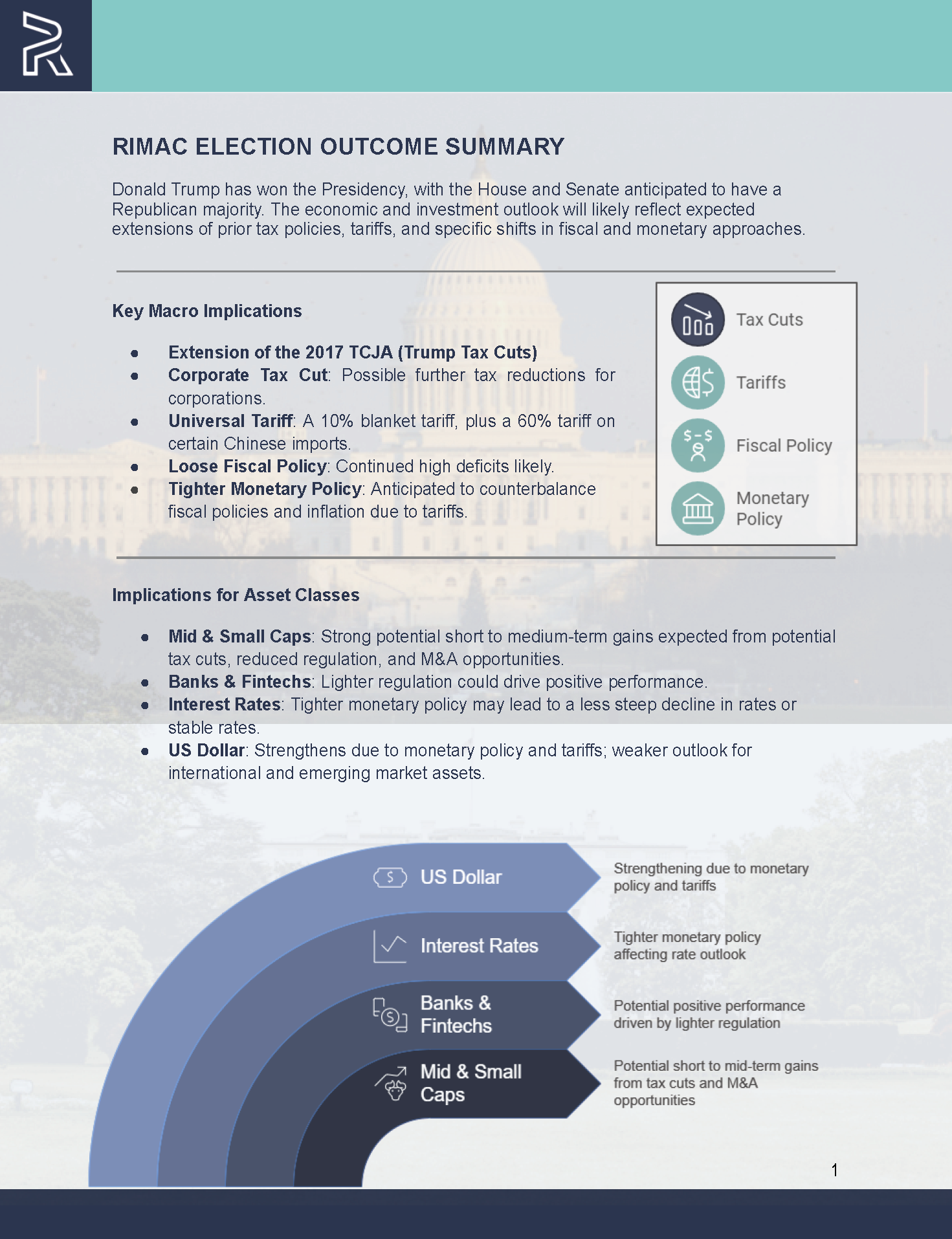Key Insights on the 2024 U.S. Election Results
Election Outcome Insights
The recent U.S. election results mark a notable shift, with Donald Trump winning the presidency and a likely Republican majority in Congress. This outcome is anticipated to drive substantial economic and policy changes, which will have far-reaching implications for various asset classes and sectors. Here’s a closer look at the projected fiscal and monetary policies and how they may affect investment decisions.
Key Economic Policies Under Trump’s Administration
Continuation of Tax Reforms: The Trump administration is expected to extend the 2017 Tax Cuts and Jobs Act (TCJA), which initially brought corporate tax reductions and incentives to stimulate economic growth. Further corporate tax cuts may be introduced, providing a boost to corporate earnings and benefiting sectors that have significant tax liabilities.
Introduction of Universal Tariffs: The administration has proposed a 10% universal tariff, with an additional 60% on selected imports from China. These tariffs aim to bolster domestic production but could lead to increased costs on imported goods. This approach may also put upward pressure on inflation, potentially requiring an adjustment in monetary policy to counterbalance rising prices.
Loose Fiscal Policy and High Deficits: With plans for increased fiscal spending, high deficits are likely to continue. While this spending can stimulate short-term economic activity, it may also lead to inflationary pressures, making it essential for the Federal Reserve to implement tighter monetary policies.
Tighter Monetary Policy: In response to inflation risks from tariffs and fiscal spending, the Federal Reserve may adopt a tighter monetary stance, possibly leading to a stabilization or slower decline in interest rates. This shift could impact borrowing costs and influence investment flows between sectors.
Implications for Key Asset Classes
Mid and Small-Cap Stocks: Companies within the mid and small-cap segments are positioned to benefit from potential tax cuts and deregulation. At the same time, the expected emphasis on U.S. manufacturing could support growth in these companies, particularly in industries focused on domestic markets.
Banking and Fintech Sectors: The financial sector may experience growth as regulatory constraints ease, fostering innovation and profitability, especially for fintech firms. Lower regulatory burdens could stimulate more lending and financial activity, potentially increasing valuations in these sectors.
Interest Rates and the U.S. Dollar: The Federal Reserve’s tighter policy could result in a stronger U.S. dollar, which may affect international investments and emerging markets. Investors should consider currency risk when evaluating assets with global exposure, as a stronger dollar could reduce the value of foreign investments in dollar terms.
Investment Considerations for Advisors
For financial advisors, this political shift presents both opportunities and risks. It may be an ideal time to evaluate client portfolios, especially in sectors sensitive to tax and regulatory changes. For clients with international holdings, considering hedging strategies against dollar appreciation might be prudent. Maintaining a diversified portfolio with selective exposure to mid and small-cap stocks, banking, and U.S.-centric investments could provide balanced growth potential and risk management.

